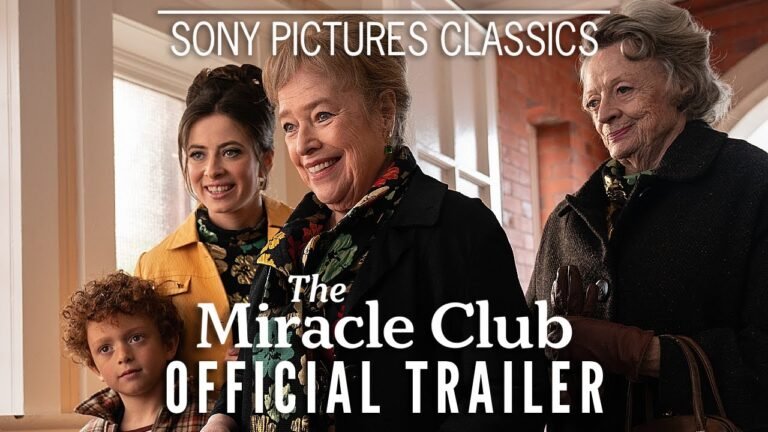The Legacy of Pope Benedict: Joseph Ratzinger’s Impact on the Church
Pope Benedict Joseph Ratzinger, who led the Catholic Church from 2005 until his historic resignation in 2013, remains a figure of profound influence and complexity. With a career marked by theological brilliance and a commitment to tradition, Ratzinger’s papacy navigated the challenges of modernity while upholding the Church’s core values. His unique blend of humility and intellectual rigor reshaped the landscape of Catholicism, leaving an indelible mark that continues to resonate within the faith community and beyond. As we reflect on his legacy, we explore the pivotal moments and enduring teachings that define his remarkable journey.
What legacy did Pope Benedict Joseph Ratzinger leave?
Pope Benedict Joseph Ratzinger left a legacy of theological depth, emphasis on tradition, and a commitment to interfaith dialogue, alongside his resignation, reshaping papal expectations.
Why did Pope Benedict XVI resign?
Pope Benedict XVI, born Joseph Ratzinger, made the historic decision to resign due to the challenges posed by his advancing age and the heavy physical and mental demands of the papacy. Acknowledging his declining strength, he expressed his commitment to continue serving the Church, emphasizing a life devoted to prayer as a way to remain spiritually active despite stepping down from the papal office. This unprecedented choice highlighted his deep sense of responsibility and dedication to the Catholic faith.
What was Ratzinger’s age when he became pope?
On April 19, 2005, Ratzinger made history by becoming the oldest newly elected pope at the age of 78, a notable distinction since the time of Clement XII. Despite his initial reluctance and prayers against being chosen, he embraced his role with humility and purpose. His selection of the name Benedict XVI honored St. Benedict, symbolizing a commitment to renewal and stability within the Church during a pivotal time.
Is The Two Popes based on a true story?
“The Two Popes” weaves a narrative that intertwines historical events with imaginative speculation, creating a compelling portrayal of the relationship between Pope Benedict XVI and Pope Francis. While the film draws upon real-life speeches and documented philosophical discussions, it primarily takes creative liberties to enhance the dramatic tension and emotional depth of their interactions.
This blend of fact and fiction allows audiences to engage with the complex themes of faith, doubt, and leadership in the modern Church. As screenwriter Anthony McCarten noted, the essence of storytelling often lies in the realm of speculation, prompting viewers to reflect on the intricate dynamics of power and belief that shape our world.
A Theological Journey: Ratzinger’s Contributions to Catholic Doctrine
Joseph Ratzinger, known to the world as Pope Benedict XVI, embarked on a profound theological journey that significantly shaped contemporary Catholic doctrine. His scholarly work emphasized the importance of tradition and the continuity of faith, arguing that understanding the Church’s past is essential for navigating modern challenges. Ratzinger’s writings, particularly his seminal work “Introduction to Christianity,” reflect a deep exploration of the relationship between faith and reason, showcasing his belief that a robust intellectual foundation is vital for a vibrant spiritual life.
Central to Ratzinger’s contributions is his commitment to the concept of the “hermeneutic of continuity,” which advocates for interpreting Church teachings in a way that harmonizes with historical doctrine rather than viewing them as discontinuous or outdated. This perspective encourages Catholics to engage with their faith critically and lovingly, fostering a deeper understanding of the mysteries of Christianity. His approach invites believers to see the richness of the Church’s heritage as a living source of wisdom, rather than a relic of the past.
Furthermore, Ratzinger’s tenure as Prefect of the Congregation for the Doctrine of the Faith allowed him to address contemporary ethical issues through the lens of Catholic teaching. He championed the dignity of the human person and the sanctity of life, emphasizing that these principles are rooted in the very essence of the Gospel. By articulating a vision of faith that is both intellectually rigorous and pastorally sensitive, Ratzinger has left an indelible mark on Catholic doctrine, inspiring a new generation of theologians and faithful alike to seek a deeper relationship with God and a more profound understanding of their faith.
Bridging Tradition and Modernity: Pope Benedict’s Vision
Pope Benedict XVI epitomized the delicate balance between the rich traditions of the Catholic Church and the demands of a rapidly changing modern world. His papacy was marked by a deep reverence for the Church’s historical roots, emphasizing the importance of maintaining core values while engaging thoughtfully with contemporary issues. Benedict believed that tradition should not be a barrier to progress, but rather a foundation upon which to build a more relevant and vibrant faith experience for today’s believers.
In his writings and public addresses, Benedict often highlighted the need for a dialogue between faith and reason, urging the Church to embrace intellectual rigor alongside spiritual depth. He recognized that in a world increasingly influenced by technology and secularism, a robust theological framework was essential for addressing moral dilemmas and guiding individuals toward meaningful lives. By fostering a culture of inquiry and reflection, he aimed to equip the faithful with the tools necessary to navigate the complexities of modern existence without losing sight of their spiritual heritage.
Benedict’s vision extended beyond mere adaptation; he sought a harmonious integration of the old and the new. His emphasis on liturgical beauty and reverence served to reawaken a sense of awe and wonder in worship, inviting both young and old to experience the sacred in a profound way. Through his leadership, he aspired to create a Church that not only honors its past but also inspires future generations, ensuring that faith remains a vibrant force in an ever-evolving world.
A Scholar’s Influence: Joseph Ratzinger’s Academic Legacy
Joseph Ratzinger, better known as Pope Benedict XVI, left an indelible mark on the world of theology and philosophy through his extensive academic career. His scholarly work, characterized by a profound engagement with the tradition of the Church, emphasized the importance of reason and faith in understanding divine truths. Ratzinger’s writings, particularly on the nature of revelation and the role of the Church in modern society, continue to inspire theologians and laypeople alike, bridging the gap between contemporary issues and timeless doctrines.
Ratzinger’s influence extended beyond his role as a theologian; he played a pivotal part in shaping the Catholic Church’s response to modernity. His emphasis on the need for a dialogue between faith and reason resonated with scholars and thinkers across various disciplines. By addressing the challenges posed by secularism and relativism, he encouraged a deeper exploration of spiritual and moral questions, urging believers to engage thoughtfully with the complexities of contemporary life while remaining rooted in their faith.
As a professor and later as a cardinal, Ratzinger nurtured a generation of theologians, instilling in them a rigorous academic discipline paired with a commitment to the Church’s mission. His approach to teaching was marked by clarity and depth, inviting students to grapple with profound theological concepts while fostering an environment of respect and inquiry. The legacy of Joseph Ratzinger as a scholar endures, as his contributions continue to enrich theological discourse and inspire future generations to pursue a deeper understanding of faith in an ever-evolving world.
Faith and Leadership: The Enduring Effects of Benedict’s Papacy
Pope Benedict XVI’s papacy, characterized by profound theological insights and a commitment to dialogue, significantly reshaped the landscape of contemporary Catholicism. Emphasizing the importance of faith as a foundation for leadership, he led with a blend of humility and intellectual rigor. His encyclicals and public addresses often highlighted the necessity of integrating faith into the fabric of everyday life, inspiring leaders across various sectors to embrace a moral framework that prioritizes compassion and understanding.
Benedict’s approach to leadership was rooted in a deep sense of responsibility, urging both clergy and laypeople to engage meaningfully with the complexities of modern society. His emphasis on the importance of truth and reason encouraged leaders to forge connections that transcend cultural and ideological divides. This call for authentic dialogue fostered a culture of trust and cooperation, enabling communities to address pressing global challenges with a united front, grounded in shared values.
The enduring effects of Benedict’s papacy continue to resonate today, particularly in the ways leaders are encouraged to embody their beliefs in practical, transformative actions. His legacy serves as a reminder that faith is not merely a personal conviction but a powerful catalyst for positive change. As leaders navigate an increasingly interconnected world, the principles championed by Benedict—such as the importance of humility, respect for others, and a commitment to the common good—remain vital in shaping a more just and compassionate society.
From Cardinal to Pope: Ratzinger’s Transformative Role in the Church
Joseph Ratzinger’s journey from Cardinal to Pope marked a pivotal moment in the Catholic Church’s history, characterized by his profound theological insights and unwavering commitment to tradition. As a Cardinal, Ratzinger served as the head of the Congregation for the Doctrine of the Faith, where he played a determinante role in addressing contemporary challenges facing the Church. His deep understanding of doctrine and his ability to articulate complex theological concepts helped to stabilize the Church during times of turmoil, fostering a renewed focus on faith and moral clarity.
Upon his election as Pope Benedict XVI, Ratzinger embraced the transformative potential of his papacy, emphasizing a return to spiritual roots while engaging with modernity. His encyclicals and public addresses often highlighted the importance of faith in a rapidly changing world, encouraging dialogue between the Church and contemporary society. Through his leadership, Ratzinger not only reinforced traditional Catholic values but also sought to bridge the gap between age-old teachings and the realities of modern life, leaving an indelible mark on the Church’s trajectory.
Pope Benedict Joseph Ratzinger’s legacy as a theological scholar and a leader of the Catholic Church continues to resonate deeply within the hearts of millions. His commitment to faith, reason, and dialogue has left an indelible mark on the Church’s modern trajectory, inspiring both followers and critics alike. As we reflect on his life and teachings, the profound impact of his vision for a more engaged and compassionate Church remains a guiding light for future generations.


